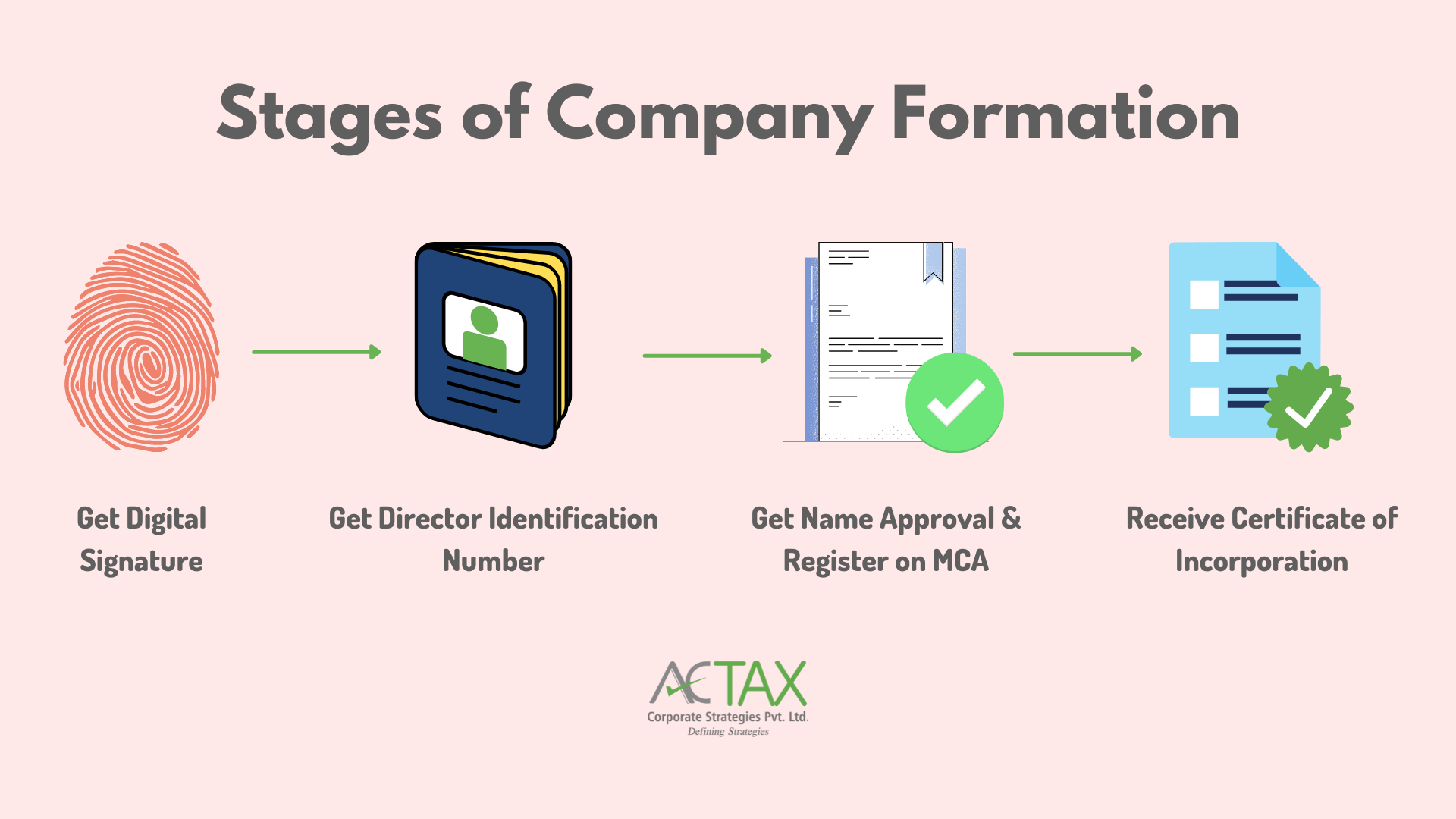Leveraging the Commercial Registration Electronic System for Reliable Company Formation
Leveraging the Commercial Registration Electronic System for Reliable Company Formation
Blog Article
Browsing the Complex Globe of Company Formation: Insights and Approaches
Starting the trip of establishing a firm can be an overwhelming task, particularly in a landscape where policies are continuously developing, and the risks are high. As entrepreneurs established out to navigate the detailed globe of business formation, it comes to be crucial to gear up oneself with a deep understanding of the intricate subtleties that define the procedure. From picking one of the most suitable company framework to ensuring stringent legal compliance and designing effective tax obligation planning approaches, the path to developing an effective service entity is filled with intricacies. However, by unwinding the layers of intricacies and leveraging insightful strategies, entrepreneurs can lead the way for a solid foundation that sets the stage for future development and sustainability.
Organization Structure Option
In the world of business formation, the vital decision of choosing the appropriate service structure lays the structure for the entity's legal and operational framework. The selection of business framework dramatically affects various facets of the company, consisting of taxation, obligation, monitoring control, and compliance needs. Entrepreneurs should thoroughly assess the offered alternatives, such as sole proprietorship, partnership, restricted liability business (LLC), or firm, to identify one of the most suitable framework that straightens with their business goals and situations.
One usual structure is the sole proprietorship, where the proprietor and the service are taken into consideration the very same legal entity. Comprehending the subtleties of each organization framework is vital in making an educated choice that establishes a solid foundation for the firm's future success.
Lawful Compliance Essentials
With the structure of an appropriate service framework in location, making sure lawful compliance fundamentals ends up being critical for protecting the entity's procedures and preserving regulatory adherence. Legal conformity is critical for companies to operate within the borders of the regulation and prevent possible penalties or legal problems. Secret legal compliance fundamentals include obtaining the necessary licenses and licenses, adhering to tax obligation guidelines, applying appropriate information security procedures, and following labor legislations. Failing to adhere to legal requirements can lead to fines, legal actions, reputational damage, and even the closure of business.
To ensure legal compliance, firms should on a regular basis review and update their plans and treatments to reflect any type of changes in policies. It is also necessary to inform employees about conformity needs and offer training to mitigate risks. Looking for legal advice or conformity professionals can better assist business browse the complex legal landscape and stay up to day with developing laws. By focusing on legal compliance fundamentals, companies can build a solid structure for lasting development and lasting success.
Tax Obligation Planning Factors To Consider

Additionally, tax obligation planning must encompass strategies to take advantage of offered tax credit reports, motivations, and deductions. By strategically timing revenue and expenses, services can potentially reduce their gross income and total tax concern. It is likewise critical to stay educated regarding adjustments in tax obligation legislations that may influence business, adjusting strategies as necessary to stay tax-efficient.
In addition, international tax obligation preparation factors to consider might develop for services operating throughout boundaries, involving intricacies such as transfer rates and international tax debts - company formation. Seeking guidance from tax experts can help navigate these complexities and develop a detailed tax obligation strategy customized to the business's needs
Strategic Financial Administration
Reliable economic management includes a detailed technique to looking after a business's financial sources, financial investments, and overall economic health. By developing detailed spending plans that align with the company's objectives and purposes, businesses can allocate resources efficiently and track efficiency against financial targets.

Another vital facet is capital administration. Keeping an eye on cash inflows and discharges, handling working resources successfully, and making certain adequate liquidity are essential for the day-to-day operations and lasting stability of a business. In addition, strategic economic monitoring entails threat evaluation and reduction techniques. By identifying financial dangers such as market volatility, debt risks, or regulatory changes, business can proactively apply procedures to guard their economic security.
Additionally, economic reporting and analysis play a vital duty in strategic decision-making. By creating exact economic records and conducting in-depth analysis, services can gain beneficial insights into their financial performance, recognize locations for renovation, and make informed calculated options that drive sustainable development and earnings.
Development and Growth Methods
To thrust a business towards increased market presence company formation and earnings, calculated growth and growth approaches must be thoroughly developed and implemented. One effective approach for growth is diversity, where a business enters brand-new markets or deals brand-new services or products to lower dangers and exploit on emerging opportunities. An additional strategy is market penetration, focusing on increasing market show existing items in existing markets with hostile marketing or rates strategies. In addition, calculated partnerships or partnerships with other businesses can offer accessibility to brand-new sources, technologies, or markets that increase growth. In addition, acquisitions and mergings can be calculated for increasing market reach, getting competitive advantages, or getting key skill. It is important for firms to perform extensive marketing research, monetary analysis, and risk assessments prior to embarking on any kind of growth technique to make certain sustainability and success. By thoroughly preparing and executing development approaches, business can navigate the complexities of expansion while taking full advantage of value for stakeholders.

Conclusion
In conclusion, browsing the complexities of business development needs mindful consideration of organization structure, lawful conformity, tax obligation preparation, economic management, and growth approaches. By read this post here strategically choosing the right service structure, making certain lawful conformity, planning for taxes, handling financial resources properly, and implementing growth strategies, business can establish themselves up for success in the affordable business atmosphere. It is important for companies to come close to firm formation with a critical and extensive way of thinking to achieve long-lasting success.
In the realm of business development, the crucial choice of selecting the suitable business structure lays the foundation for the entity's operational and lawful framework. Business owners should find out here now meticulously examine the readily available options, such as single proprietorship, collaboration, restricted liability company (LLC), or company, to figure out the most appropriate framework that aligns with their business goals and situations.
By creating detailed budgets that straighten with the company's objectives and goals, companies can designate sources successfully and track performance versus monetary targets.
In final thought, navigating the intricacies of business formation requires cautious factor to consider of organization framework, lawful compliance, tax planning, monetary monitoring, and growth methods. By tactically picking the right company framework, making certain lawful conformity, intending for taxes, managing funds effectively, and implementing growth techniques, business can establish themselves up for success in the competitive organization setting.
Report this page